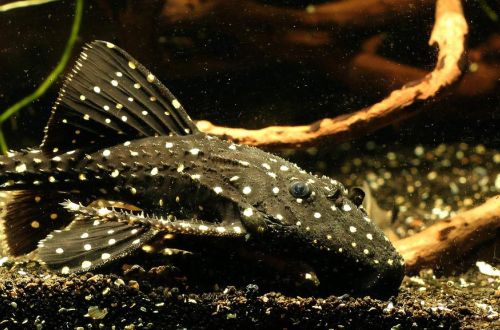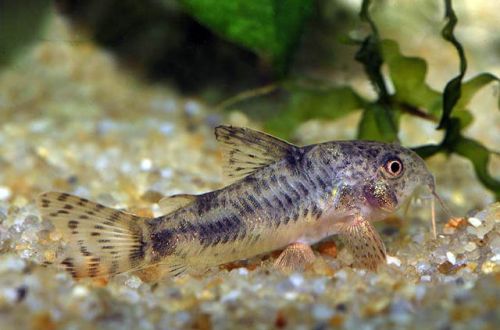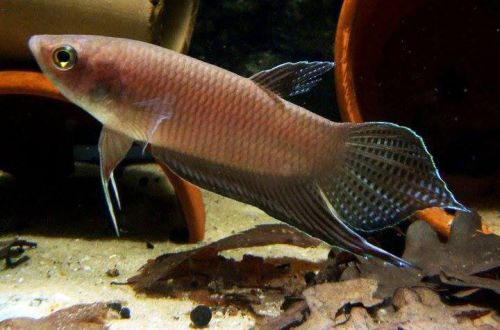
Acanthus Adonis
Acanthius Adonis, scientific name Acanthicus adonis, belongs to the family Loricariidae (Mail catfish). As a rule, it is not considered as a home aquarium fish due to its small size and behavioral characteristics of adults. Only suitable for large public or private aquariums.

Contents
Habitat
It comes from South America from the lower basin of the Tocantins River in the Brazilian state of Para. Probably, the natural habitat is much wider and covers a significant part of the Amazon. In addition, similar fish are exported from Peru. Catfish prefer sections of rivers with a slow flow and an abundance of shelters.
Brief information:
- The volume of the aquarium – from 1000 liters.
- Temperature – 23-30°C
- Value pH — 6.0–7.5
- Water hardness – 2–12 dGH
- Substrate type – any
- Lighting – subdued
- Brackish water – no
- Water movement – any
- The size of the fish is about 60 cm.
- Food – any food
- Temperament – young fish are calm, adults are aggressive
- Single content
Description
Adults reach a length of about 60 cm, although it is not uncommon for them to grow up to a meter. Young fish have a contrasting spotted body pattern, but as they mature, this disappears, turning into a solid gray color. The first rays of the dorsal and ventral fins are modified into sharp spikes, and the catfish itself is dotted with many spines. The large tail has elongated thread-like tips.
Food
An omnivore, they eat anything they can swallow. In nature, they are often found near settlements, feeding on organic waste. Various products will be accepted in aquariums: dry, live and frozen foods, pieces of vegetables and fruits, etc.
Maintenance and care, arrangement of the aquarium
The optimal size of the aquarium for one catfish starts from 1000-1500 liters. In the design, various shelters are used in the form of intertwined snags, stone heaps that form grottoes and gorges, or decorative objects that serve as a refuge. Aquatic vegetation is applicable only for young fish, adult Acantius Adonis tend to dig up plants. The lighting level is subdued.
Maintaining high water quality within an acceptable range of hydrochemical values and temperatures requires an efficient filtration system and other special equipment. Regular replacement of part of the water with fresh water also implies separate water treatment and drain systems.
Such aquariums are very bulky, weigh several tons and require significant financial costs for their maintenance, which excludes them from the field of amateur aquarism.
Behavior and Compatibility
Young fish are quite peaceful and can get along with other species of comparable size. With age, the behavior changes, the catfish become territorial and begin to show aggression towards anyone who swims into their area.
Breeding / breeding
Successful cases of breeding in an artificial environment have been recorded, but there is little reliable information. Acantius Adonis spawns in underwater caves, males are responsible for guarding the clutch. Females do not participate in the care of offspring.
Fish diseases
Being in favorable conditions is rarely accompanied by a deterioration in the health of fish. The occurrence of a particular disease will indicate problems in the content: dirty water, poor quality food, injuries, etc. As a rule, eliminating the cause leads to recovery, however, sometimes you will have to take medication. Read more about symptoms and treatments in the Aquarium Fish Diseases section.





